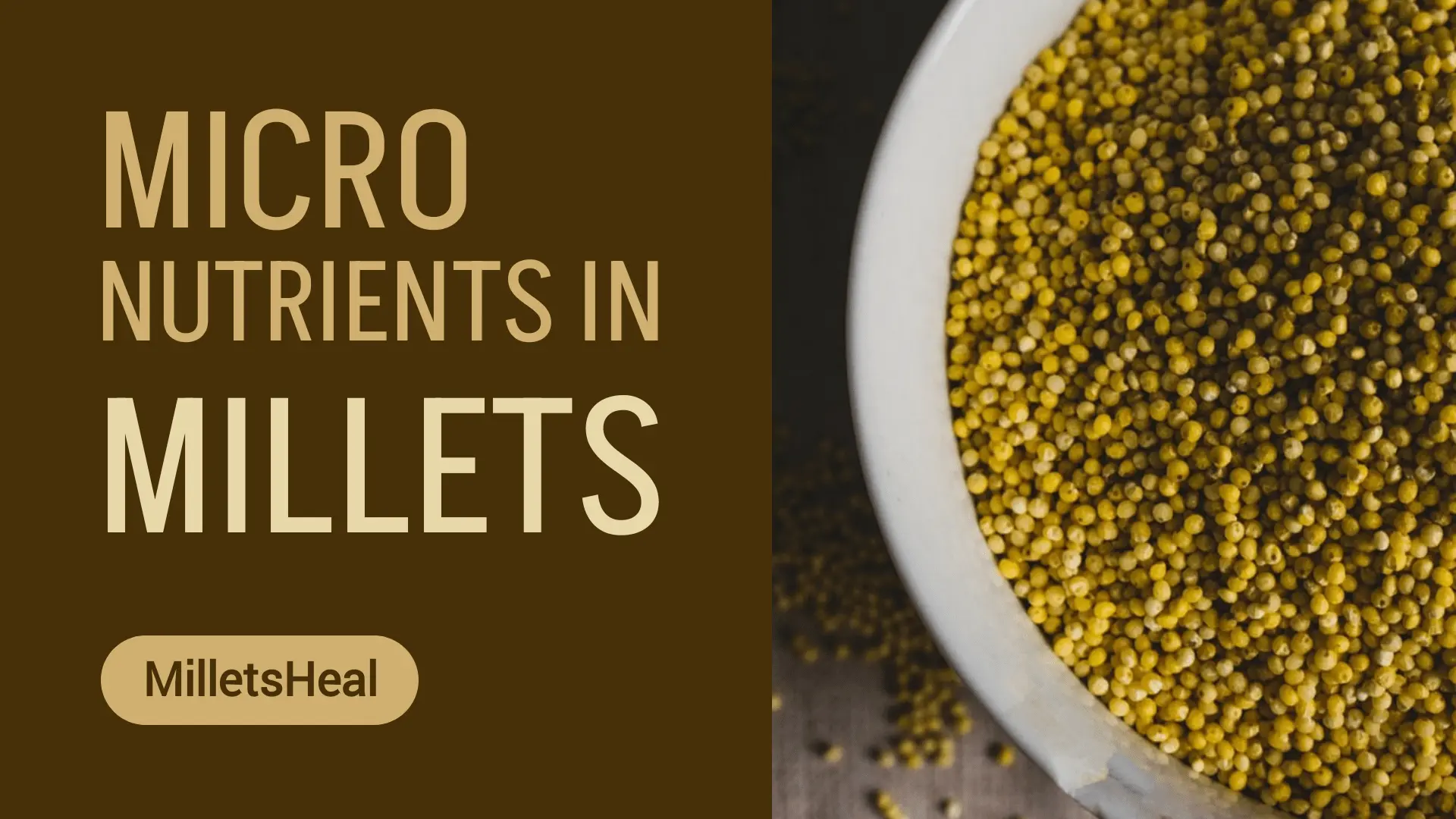When it comes to healthy eating, we often focus on macronutrients like carbohydrates, proteins, and fats.
But what about those tiny, nutrient-packed powerhouses known as millets? These small grains may be small in size, but they offer big benefits for your health.
In this article, we’ll dive deep into the world of millets and explore the incredible micronutrients they contain.
What Are Millets?
Millets are a group of small-seeded grasses that have been cultivated for thousands of years.
They are commonly grown in arid and semi-arid regions and have been a staple food in many parts of the world, particularly in Africa and Asia.
Millets come in various types, including pearl millet, foxtail millet, finger millet, and sorghum, among others.
The Micronutrient Marvels
While millets are often overshadowed by more popular grains like rice and wheat, they are a nutritional powerhouse, especially when it comes to micronutrients.
Micronutrients are essential vitamins and minerals that our bodies need in small quantities to function properly.
Let’s take a closer look at some of the key micronutrients found in millets and how they can benefit your health.
Iron
Iron is crucial for the production of hemoglobin, the protein in red blood cells that carries oxygen to all parts of your body. Iron deficiency can lead to fatigue, weakness, and anemia. Millets, particularly finger millet (ragi), are rich in iron. Adding millet to your diet can help boost your iron intake and prevent anemia.
Magnesium
Magnesium is essential for muscle and nerve function, blood glucose control, and bone health. Millets are a good source of magnesium, which can help reduce the risk of muscle cramps, improve sleep quality, and support heart health.
Phosphorus
Phosphorus is vital for strong bones and teeth, as well as for energy metabolism. Millets contain phosphorus, contributing to overall bone health and ensuring your body efficiently uses energy from the food you eat.
B Vitamins
Millets, especially foxtail millet, are rich in various B vitamins, including niacin (B3), thiamine (B1), and riboflavin (B2). These vitamins play a crucial role in energy production, nerve function, and maintaining healthy skin and hair.
Zinc
Zinc is essential for immune system function, wound healing, and DNA synthesis. Millets contain zinc, which is important for overall immune support and maintaining healthy skin.
Fiber
Fiber is a type of carbohydrate that our bodies cannot digest, but it plays a vital role in digestive health. Millets are a good source of dietary fiber, which can help regulate bowel movements, prevent constipation, and support a healthy gut.
Antioxidants
Millets contain various antioxidants, such as phenolic compounds and flavonoids. These antioxidants help protect your cells from damage caused by free radicals and may reduce the risk of chronic diseases like cancer and heart disease.
Protein
While millets are not as high in protein as some legumes or animal products, they still provide a significant source of plant-based protein. This can be particularly beneficial for vegetarians and vegans looking to meet their protein needs.
How to Incorporate Millets Into Your Diet
Now that you know about the impressive micronutrient content of millets, you might be wondering how to include them in your diet. Here are some simple ways to enjoy the nutritional benefits of millets:
Replace Rice or Wheat
Substitute millets like foxtail or pearl millet for rice or wheat in your meals. You can make millet-based rice, rotis, or even pasta.
Porridge
Start your day with a warm millet porridge. Ragi porridge is a popular choice and is especially good for children due to its high calcium content.
Baking
Use millet flour to bake bread, muffins, or cookies for a healthier twist on your favorite baked goods.
Salads
Add cooked and cooled millet to your salads for an extra crunch and nutty flavor.
Soups and Stews
Millets can be added to soups and stews to make them heartier and more nutritious.
Snacks
Make millet-based snacks like puffed millet bars or roasted millet mixtures for a healthy on-the-go option.
Conclusion
Don’t underestimate the power of these small grains. Millets are not only delicious but also packed with essential micronutrients that can have a positive impact on your health.
Whether you’re looking to boost your iron intake, improve your bone health, or simply add more variety to your diet, millets are a versatile and nutritious choice.
So, the next time you’re planning your meals, consider incorporating millets. Your body will thank you for the small grains with big impacts on your health.
Remember, before making significant changes to your diet, it’s always a good idea to consult with a healthcare professional or a registered dietitian to ensure that it aligns with your individual nutritional needs and goals.
Start reaping the benefits of millets today and embark on a journey to better health, one small grain at a time.
